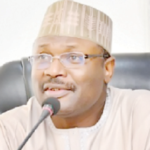Ken Robinson is the National Publicity Secretary of Pan-Niger Delta Forum (PANDEF), the apex socio-political organisation of leaders of the Niger Delta states. He speaks with EBENEZER ADUROKIYA on happenings associated with the recent general election. Excerpts:
Issues concerning the recent general elections are taking different dimensions almost every day because of the claims and counter-claims by the various power blocs, political parties and other interests. What is your take on the elections generally?
In general terms, fair! But with regards to the conduct of the February 25 Presidential and National Assembly election, as we had earlier stated, INEC performed below expectation. However, there were improvements in certain aspects like logistics, early arrival of Ad hoc staff at polling units and in the upload of results. But other problems were witnessed like intimidation of voters, snatching ballot boxes and destruction ballot papers, and so on. So, overall, below average.
People say the electoral system of the country should be making steady progress in line with global practice. How far have we been able to achieve it?
Was there an attempt to meet global standards? I doubt.
Is it a sign that we have learnt nothing from the ugly past?
Clearly, these are indications that the nation’s political class in particular and we the people, have learnt little or nothing from the past experiences. It is unfortunate that we still have these sorts of anomalies in the nation’s electoral regime. Political stakeholders, candidates in the elections and their supporters, must realize that these crude and primitive tendencies are unacceptable and amount to national ignominy. Nigeria cannot continue to stomach these oddities in our electoral processes, at this age of civilization and enlightenment.
So, you think this has some implications for the next political dispensation?
The ramifications could be far-fetched we can only hope that the next government would adopt a broader approach to governance and deal with the issues head-on. Nigeria is a divided country with awful distrust and primordial predispositions; the 2023 general elections have, as it were, “armor-plated” the dividing lines. Look at the voting pattern in the presidential election; the various zones of the country voted essentially for persons and not the parties. The South -West voted mostly for Bola Tinubu; the South-East voted primarily for Peter Obi and the North East voted mainly for former Vice President Atiku Abubakar – not minding the fact that outgoing President Muhammadu Buhari, a Fulani and Muslim, is also from the North. On other hand, look at the outcome of the governorship election in the various States.
Recall that the Southern and Middle Belt Leaders’ Forum (SMBLF) insisted that in the interest of national peace and stability, the presidency should rotate to the South after the statutory eight years of northern presidency as represented by President Muhammadu Buhari, whose administration has been characterized by ineffable nepotism and one-sidedness. The next political leadership of the country has a herculean task of re-igniting national mindfulness, call it national consciousness or better still, national re-orientation. The first step should be “house cleaning”, to bring back some level of saneness and fairness to the polity.
What can you say about the integrity of the elections given the mixed feelings among Nigerians on the elections?
We had expressed our view on the integrity of the elections earlier, and given that the parties are already in court on the subject, PANDEF wishes to reserve further comments on it. But it would suffice to reecho our appeal that all persons and parties who are dissatisfied with the conduct and outcome of the 2023 general elections, that is, both the February 25 Presidential/National Assembly election and the March 18 Governorship/State Assembly election, should seek judicial redress and not take laws into their hands, in order not exacerbate tension in the country. We hope that the courts would dispense justice without fear or favour; after all, there are established precedents. Nigeria is greater than any individual or group!
Judging from your wealth of experience, do you see those issues having implications for the next political dispensation at state and federal levels?
No, I do not think so. Some persons are allowing emotions to overly influence their reflections and it is understandable.
Several factors are bound to have played out during the general election this year. But there might have been additional idsues that influenced the process. What do you consider as the major factors that manifested during the campaigns and the election day proper this time and why?
Major factors? Money matters! Ethnicity,- where you come from; who you are; and, of course, a glimpse of “people’s power”. Most significantly, the “puissant” BVAS (Bimodal Voter Accreditation System), it mitigated the issue of ghost or multiple voting, and further exposed the fallacy of the figures being touted as number of registered voters in Nigeria. It is hope that the Independent National Electoral Commission (INEC) would, at the conclusion of this electoral process, carry out a sincere and thorough interrogation of its voters’ data and provide the Nation the correct figure of registered voters, so as to stop wasting tax payers money on materials for voters that do not exist.






